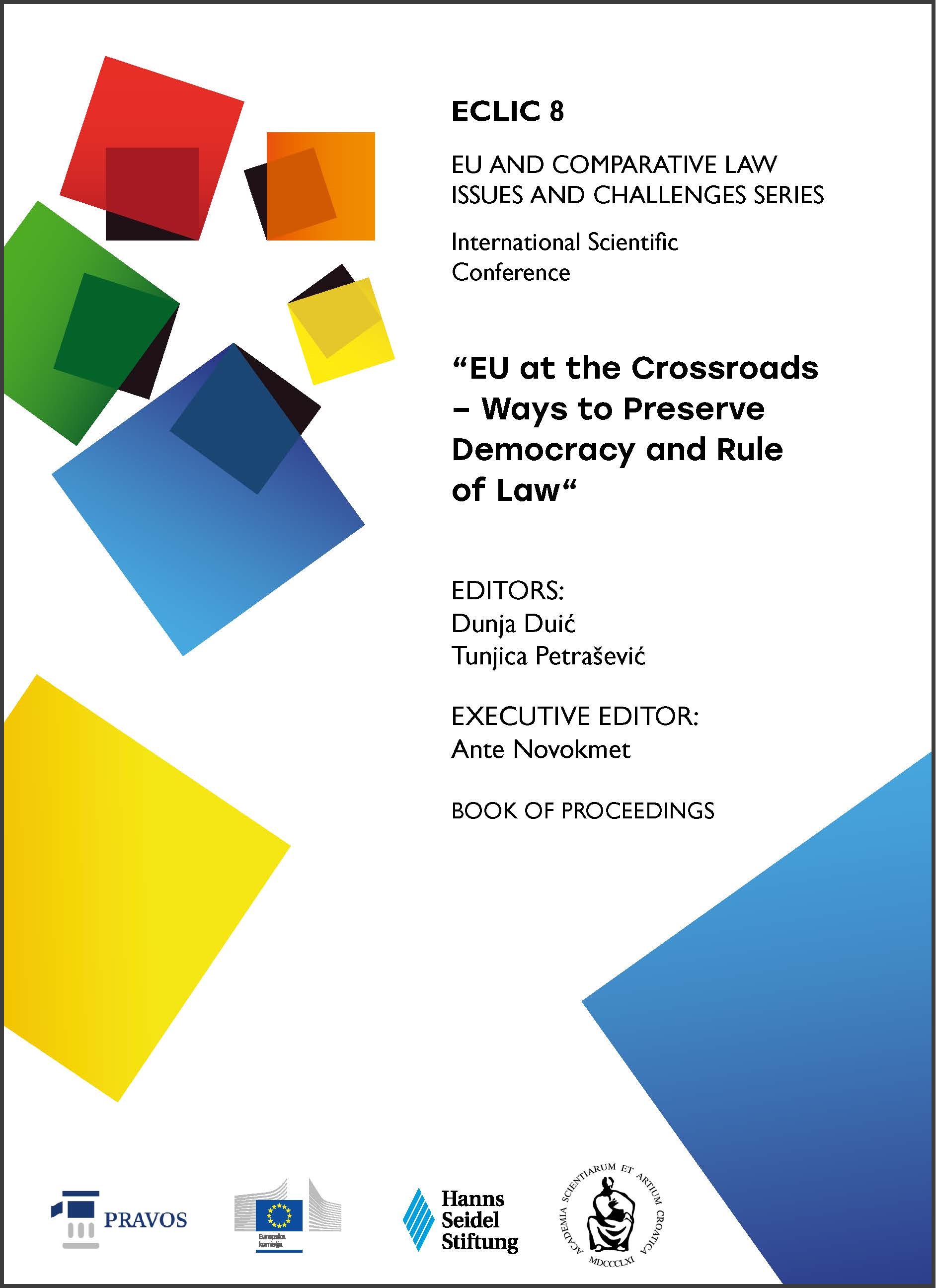THE INTERSECTION BETWEEN ARTIFICIAL INTELLIGENCE AND SUSTAINABILITY
CHALLENGES AND OPPORTUNITIES
DOI:
https://doi.org/10.25234/eclic/32300Abstract
The development of the digital revolution facilitates innovative models that generate new markets and business opportunities. The reappearance of artificial intelligence (AI) has created further potentials and types of market participation. AI is understood as a cutting-edge technology and a key driver of the transition of our economy into the digital economy.
It is important to recognize and constantly bear in mind that artificial intelligence systems provide certain benefits but are associated with certain risks and potential negative effects. The European Commission, in its Ethical Guidelines for Trustworthy Artificial Intelligence (2019), emphasizes ethical principles and associated values that must be respected in the development, introduction, and use of artificial intelligence systems: respect for human autonomy, prevention of harm, fairness, and explainability.
The question arises as to whether the emerging fundamental ethical principles and regulatory policies concerning AI systems require certain adaptations when it comes to the application of AI technology in connection with the sustainable development goals. The development of artificial intelligence systems compatible with the goals of sustainable development, as defined in the 1987 report of the UN Brundtland Commission as “development that meets the needs of the present without compromising the ability of future generations to meet their own needs”, is encouraged. Sustainability or sustainable development is defined in the literature as a concept based on three pillars - encompassing social, economic, and environmental aspects. The European Commission highlights that sustainable development is a fundamental principle of the Union Treaty and a priority goal of Union policies, along with digitization and a robust single market.
In recent years, doctrine has sought to bridge the gap between the two disciplines by introducing the term “Sustainable AI”. The aim of the paper is to understand the development of AI that is compatible with sustainable goals. To understand this, it is necessary to comprehend the basic concepts of artificial intelligence systems and explore the sociological, ecological, and economic implications of these systems, all with the aim of finding ways to achieve the goals of sustainable development and the sustainability of AI systems themselves. These are closely tied to adhering to the highest ethical principles with the responsible use of artificial intelligence systems.
Downloads
Published
How to Cite
Issue
Section
License
Copyright (c) 2024 Ana Pošćić

This work is licensed under a Creative Commons Attribution-NonCommercial 4.0 International License.
Authors retain the copyright on the papers published in the Journal, but grant the right of first publication to the Journal. Papers accepted for publication or already published in ECLIC of the Faculty of Law in Osijek may be published by the author(s) in other publications only with proper notice of its previous publication in ECLIC.


